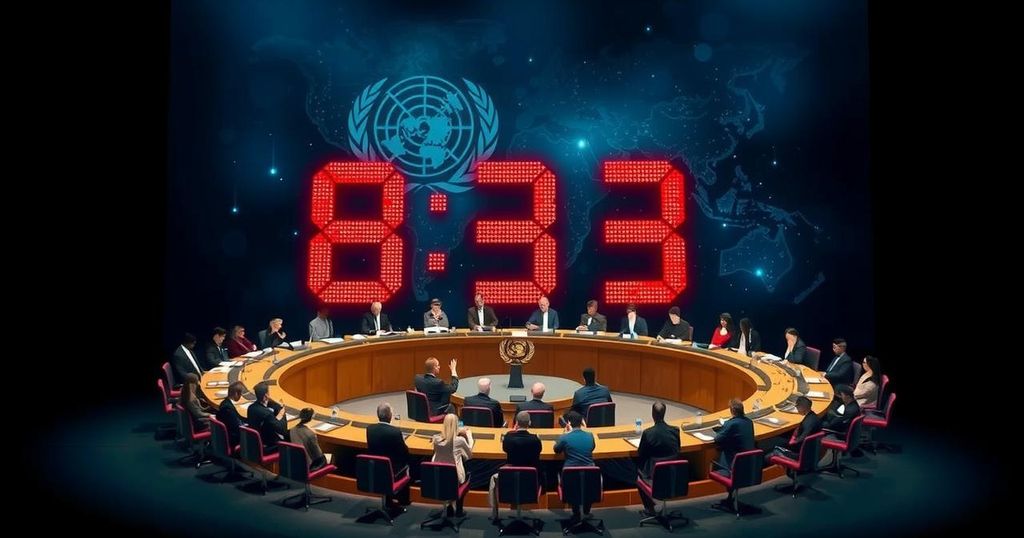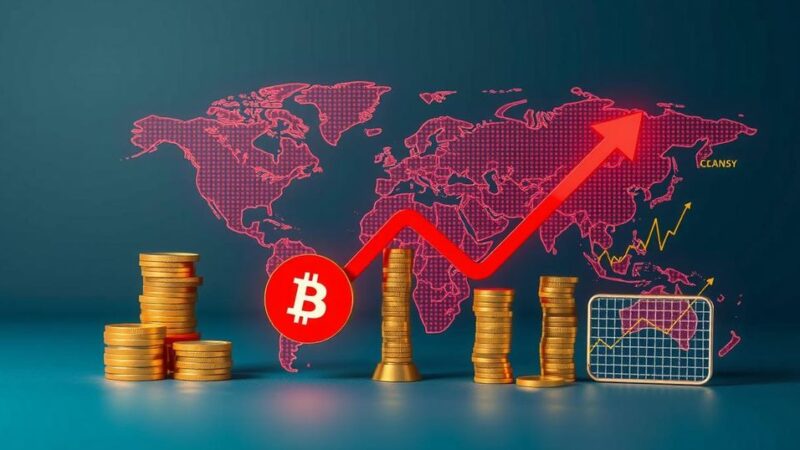Negotiators at COP29 in Baku confront urgent financial discussions as vulnerable nations seek $1.3 trillion for climate adaptation and clean energy investments. Wealthier countries are hesitant to meet these needs, with current proposals ranging from $200 billion to $300 billion annually. The negotiations focus on how to balance grant and loan offerings and determine accountability among wealthy nations to support those most impacted by climate change.
Amidst mounting pressure, negotiators at the UN’s climate summit in Baku, Azerbaijan, are striving to secure an agreement that addresses the urgent financial needs of vulnerable nations affected by climate change. COP29 President Mukhtar Babayev encouraged negotiators to expedite the technical aspects of discussions to focus on substantive solutions. It is estimated that these nations require at least $1.3 trillion to adapt to climate impacts and enhance their clean energy infrastructure, a figure significantly beyond current commitments from wealthier countries. In parallel, discussions at the G20 in Brazil, led by UN Secretary-General António Guterres, stressed that the success of COP29 hinges on the contributions from the world’s largest economies. Additionally, Brazilian President Luiz Inácio Lula da Silva urged developed nations to reassess their 2050 emission targets, proposing they be moved forward to 2040 or 2045. Key issues under negotiation include the overall financial numbers required, the distribution of grants versus loans, and the identification of contributing nations. The COP29 lead negotiator, Yalchin Rafiyev, highlighted that resolution of one issue may help unlock agreements on other related aspects. German climate envoy Jennifer Morgan emphasized the need for leadership and ambition from all participating nations. Rich nations have thus far hesitated to present a comprehensive financial proposal, with the EU expected to submit an offer ranging between $200 billion and $300 billion annually. Critics, including Debbie Hillier from Mercy Corps, claim that such amounts fall drastically short of the actual needs of developing countries and represent a betrayal of previously agreed commitments. With poorer nations protesting that they are already overburdened by debt and require grants rather than loans, Ireland’s Environment Minister Eamon Ryan stressed the critical need for developed countries to secure an agreement that puts the financial needs of vulnerable nations front and center in discussions.
The COP29 climate summit is a crucial international gathering where negotiators aim to address the severe financial challenges faced by vulnerable nations due to climate change. Developing countries have long sought international support to transition to clean energy and adapt to adverse climate effects. This year’s discussions highlight the struggle of these nations to secure necessary funding, as wealthy countries often fall short of their commitments. The financial dynamics, including the balance between grants and loans, are central to the negotiations.
In conclusion, as the COP29 climate summit in Baku approaches its conclusion, the urgency for a robust financial agreement to support vulnerable nations intensifies. With estimates suggesting a need for $1.3 trillion, the disparity between required funding and what developed nations are offering raises significant concerns. Activists and leaders alike emphasize the importance of addressing these financial challenges to ensure that developing countries can adapt effectively to climate change. The outcome of these negotiations will have profound implications for global climate action and equity.
Original Source: apnews.com







